|
Quick Links
|
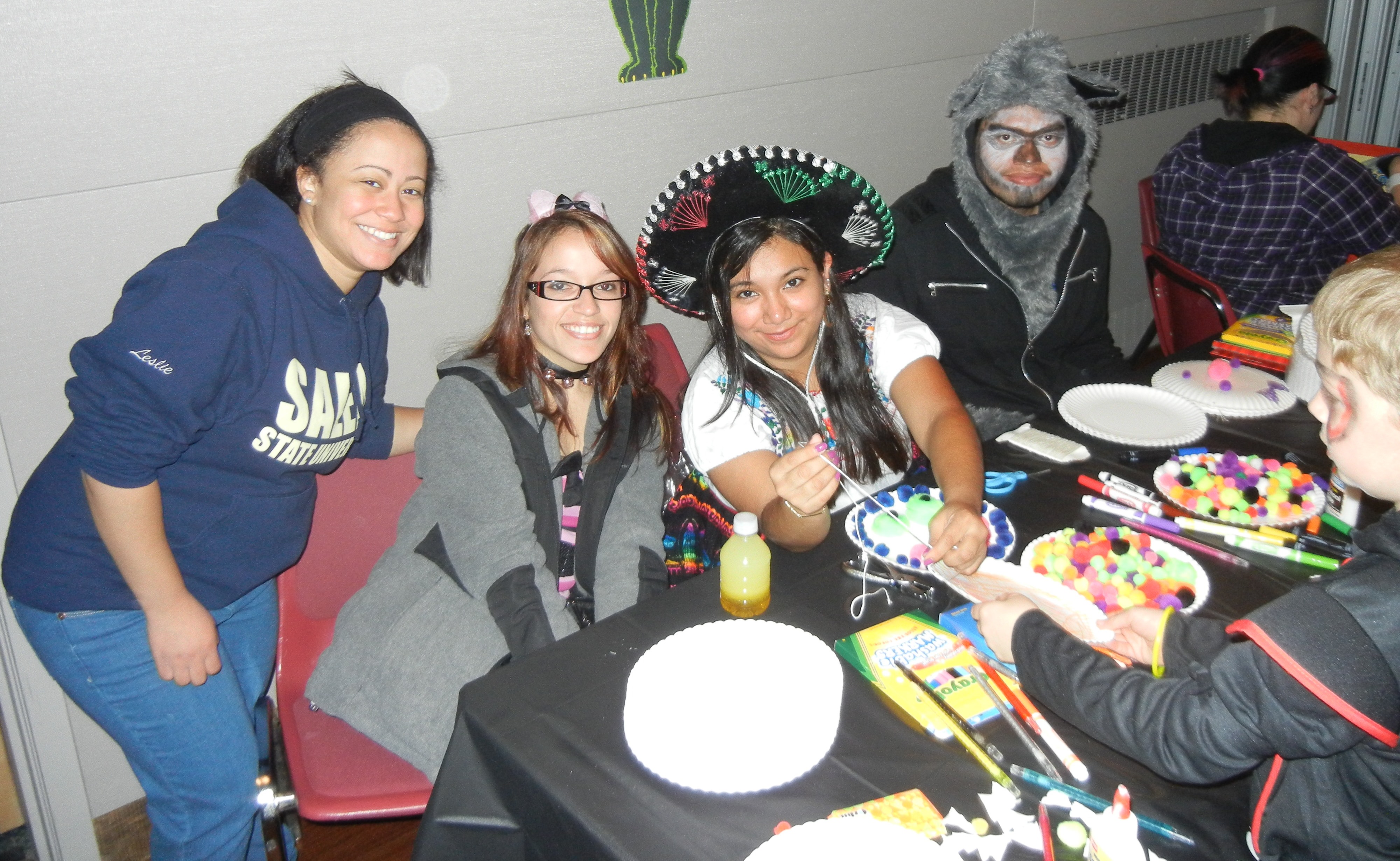 |
The goal of the Student Life Division is to promote individual student development by providing an environment which aids students in reaching their full potential. The Division offers a broad array of activities which meet intellectual, personal, social, emotional, spiritual and interpersonal needs. It is dedicated to a student development philosophy which complements and contributes to the mission and goals of the University, offering a broad range of co-curricular programs which provide learning opportunities.
Campus Center
The George H. Ellison Campus Center serves the university community through a variety of cultural, social, educational and recreational activities and programs. Housed in the facility are the Student Involvement and Activities Office, the Winfisky Art Gallery, student lounges, and student group and club offices. An information center and the Director’s office serve as a clearinghouse for information about campus events.
Major student organizations with offices in the Campus Center include the Student Government Association, Program Council, the Log (newspaper), WMWM-FM (radio), the Hispanic American Society, the Multicultural Student Association, the Alliance, the Asian Students Association, the Florence Luscomb Women’s Center, the student member of the university Board of Trustees and many other student groups. Meeting rooms, large and small, are also available in the Center.
The Campus Center contributes to the educational, cultural and social environment by providing a variety of programs and activities, which enhance university and community life. These programs are coordinated and sponsored by the Program Council, the largest student programming organization, and by the approximately sixty other student organizations. As the heart of co-curricular life at Salem State, the Campus Center strives to include all students as active and involved members of the community, welcoming all to take part in our programs and services. For additional information, go to: salemstate.edu/3531.php.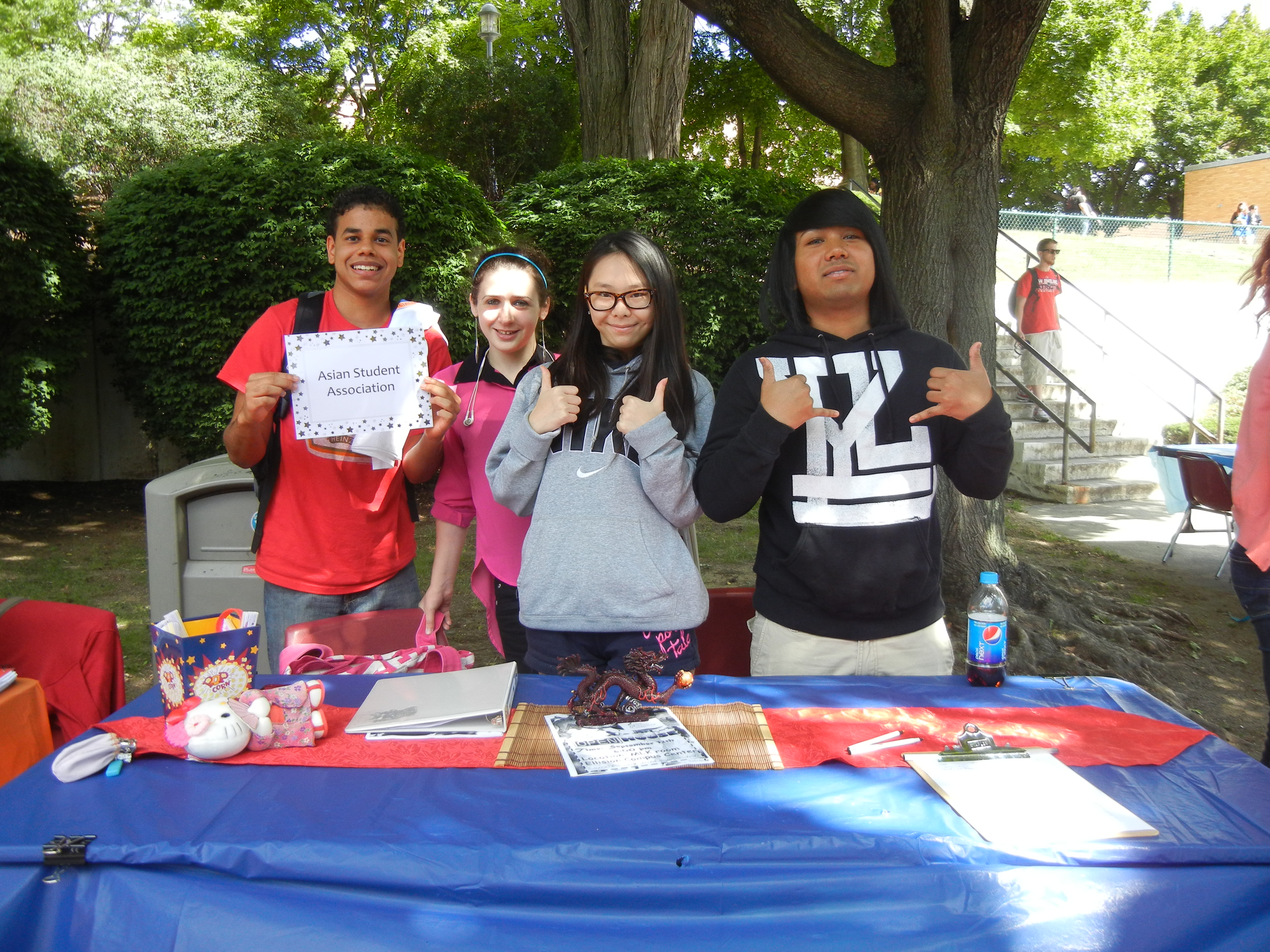
Student Government Association, Inc.
The Student Government Association, Inc. (The S.G.A.) is the governing body of Salem State students. There is one Senator elected for every three hundred students of each class. The five officers are as follows: President, Vice President, Secretary, Treasurer and Assistant Treasurer.
The S.G.A. is the student voice in organizing student services and committees and is responsible for the interests and rights of students in such matters as student life, academic policies and campus judicial procedures. The Tutoring Program, student publications, radio station, social and cultural groups, and professional organizations are examples of student groups supported by the Student Government Association. For more information go to: salemstate.edu/student_life/5891.php.
Program Council
The Program Council develops, organizes, and presents programs, which serve the cultural, educational, recreational, and social interests of the student body and the university community. The Program Council, run totally by and for students, is a major sponsor of activities on campus. Members have an opportunity to develop as student leaders and expand their human relation skills because of the extensive contact that they have with the entertainment and campus communities.
No experience is needed to apply for the Program Council. For more information on how to get involved with the Council, whether for a coordinator or to be on a committee, come to the Program Council office on the second floor of the Campus Center in Room 217. For more information go to: salemstate.edu/student_life/427.php.
Student Organizations
Student organizations are continually being developed. The following are those organizations currently recognized by the University:
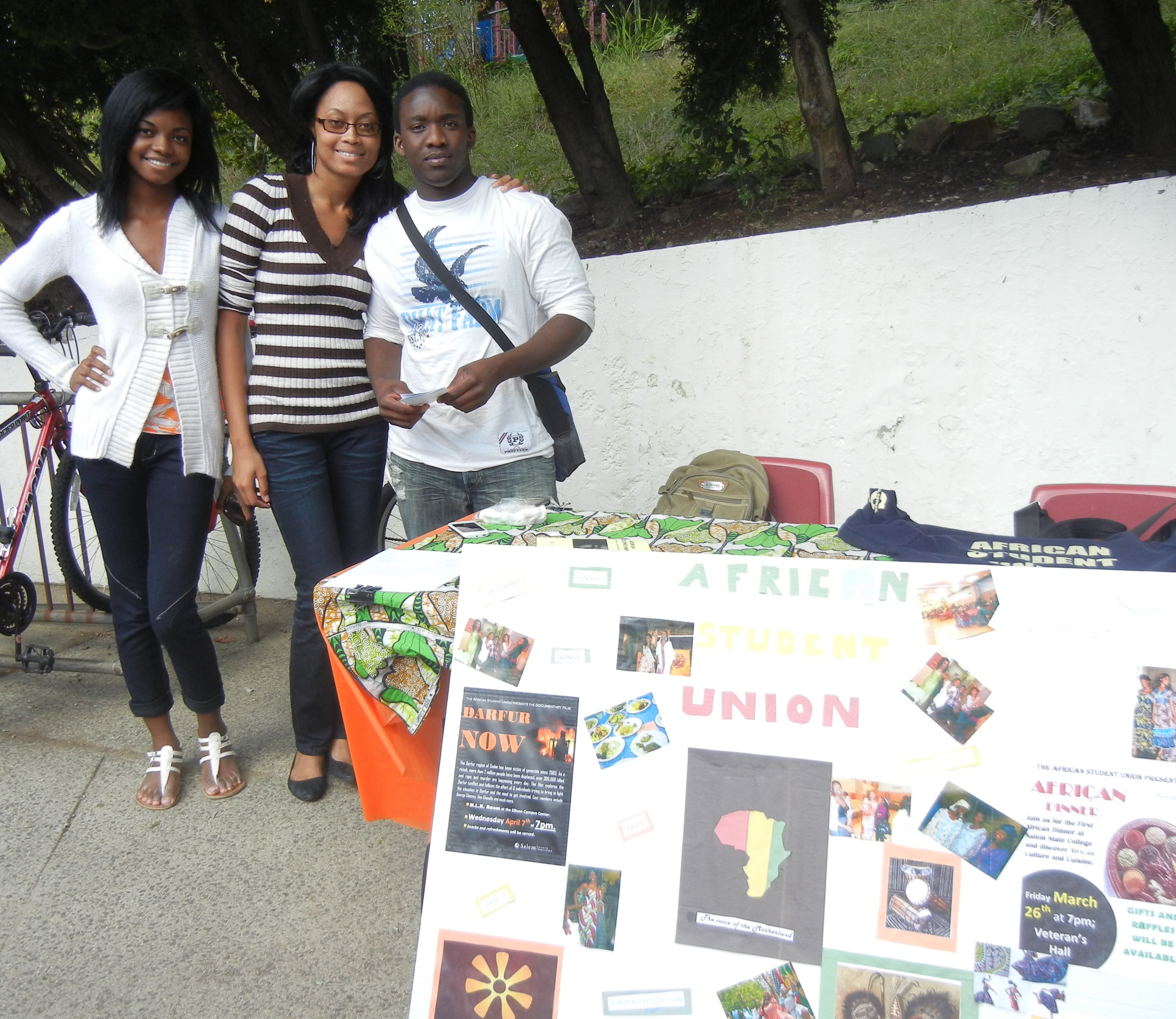 Accounting Association – encourages professional interest among students preparing for careers in accounting. Contact Professor Doug Larson (x-6817). Accounting Association – encourages professional interest among students preparing for careers in accounting. Contact Professor Doug Larson (x-6817).
African Student Union – unites African students and raises awareness of African issues, culture and values. Contact Professor Joseph Aiyeku (x-6634).
The Alliance – offers opportunities to meet, support and plan events for gay, lesbian, bisexual, transgender students and their straight supporters. Meetings held Thursdays at 4:30pm in ECC Presidential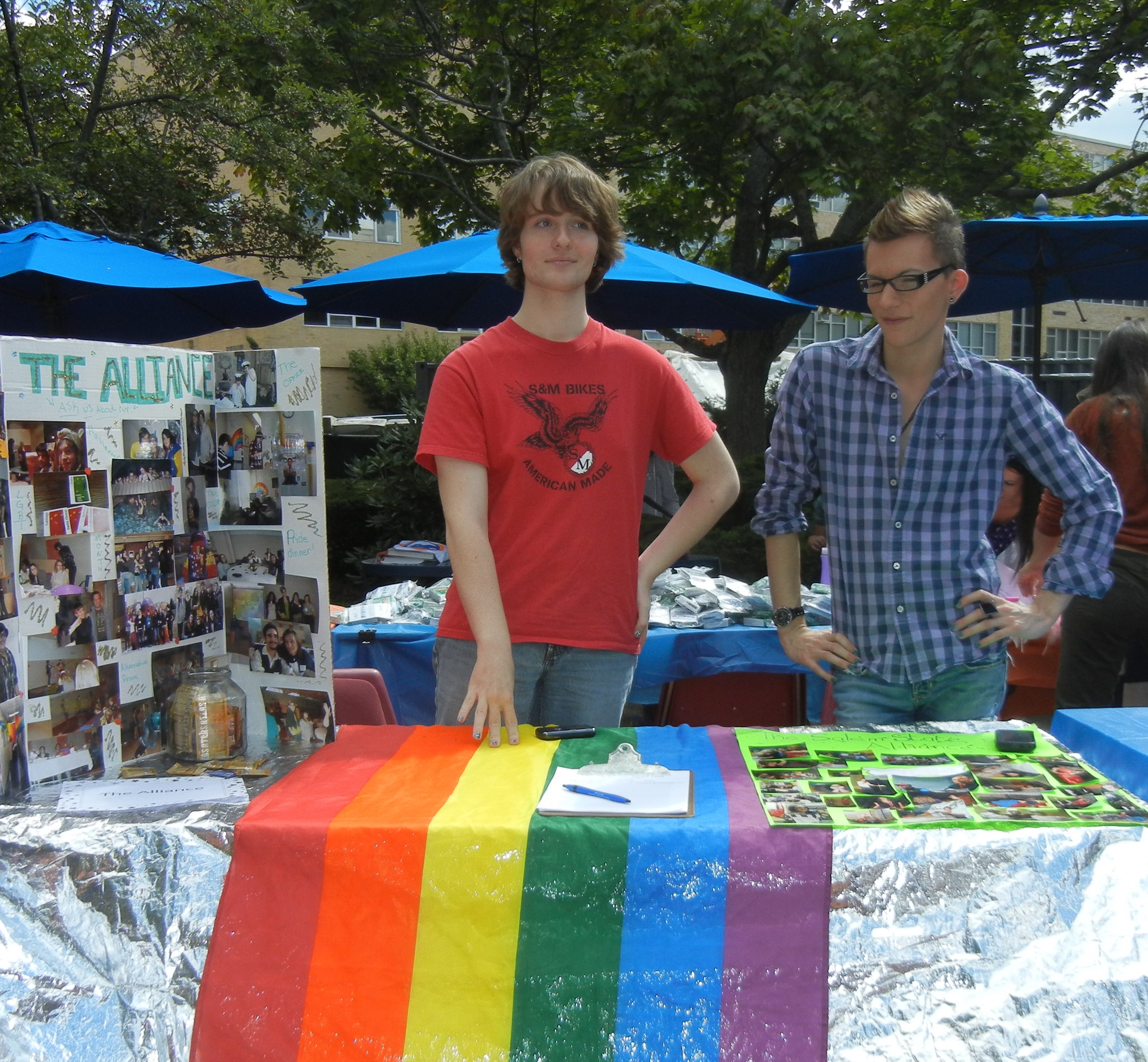 Conference Room. Contact ECC 206 (x-7541). Conference Room. Contact ECC 206 (x-7541).
American Advertising Federation – promotes and protects the field of advertising. Contact Professor Guillermo Avila-Saavedra (x-7891).
American Marketing Association – exposes students to the practical and ethical practices of marketing in the business world. Contact Professor Joseph Aiyeku (x-6634).
Amnesty International – campaigns to end grave abuses of human rights and to insure that every person enjoys the rights in the Universal Declaration of Human Rights. Meetings held Mondays at 1pm in MH 333A. Contact Professor Vanessa Ruget (x7180).
Anime Club – encourages the appreciation and understanding of Anime media. ContactProfessor Keja Valens (x-7050).
Asian Students Association – provides activities for students to have a better understanding of different Asian ethnic backgrounds. Contact ECC 208 (x-6738).
Association for Computing Machinery – fosters student interest in the field of computer science. Contact Professor Charles Stevenson (x-7426).
Biological Society – offers opportunities for students to expand their knowledge of biology. Meetings held Mondays at 11am in MH 533. Contact Professor Ryan Fisher (x-6756).
Campus Educators on Sexual Assault – offers training and workshops on sexual assault education and prevention. Contact Bruce Perry (x-6435).
 Campus Hope – to know and experience the love God has for us all. Contact Professor Lisa Johnson (x-2299). Campus Hope – to know and experience the love God has for us all. Contact Professor Lisa Johnson (x-2299).
Chemistry Society – provides opportunities to further investigate the field of chemistry, including all applications of science. Contact Professor Christine MacTaylor (x-6743).
Community Service Group – provides service events that will enhance the well being of the Salem State community and the surrounding area. Meetings held Mondays at11am in ECC 220B. Contact Bruce Perry (x-6435).
Computer Programming Club - brings students interested in programming together and raises awareness of computer science issues. Contact Professor Beifang Yi (x-7426).
Criminal Justice Academy – enhances students’ awareness in the field of criminal justice through group activities, guest speakers and field trips. Meetings held Mondays at 11am in HB 111. Contact Professor Girgen (x-7087).
CRU – encourages students to develop a personal relationship with God. Meetings held Mondays at 11am in SB 101. Contact Professor Celena Sky April (x-6738).
Earth Science Association – promotes and conducts educational activities about geological sciences and the earth. Contact Professor Rory McFadden (x-6283).
Economics Club – encourages the understanding of economics in theoretical and practical applications. Contact Professor Kevin Ardon (x-6683).
Finance Association – provides learning experiences, career awareness and networking opportunities for students. Meetings held Mondays at 11am in CC111. Contact Professor Sanjay Kudrimoti (x-6641).
 Florence Luscomb Women’s Center – operates as a resource and referral service for women with a diversity of needs. Meetings held Mondays at 11am in ECC 211. Contact ECC 211 (x-6555). Florence Luscomb Women’s Center – operates as a resource and referral service for women with a diversity of needs. Meetings held Mondays at 11am in ECC 211. Contact ECC 211 (x-6555).
French Club - promotes awareness of Francophone cultures through a variety of programs. Contact Professor Elizabeth Blood (x-6867).
Greek Council – promotes the general welfare of the overall fraternity and sorority community. Meetings held Mondays at 4pm in ECC Presidential Conference Room. Contact Bruce Perry (x-6435).
Hispanic-American Society – promotes interest among students in Hispanic history and culture by sponsoring educational, cultural and social events. Contact ECC 009 (x-6287).
Historical Association – engages students in historical study and discussion. Contact Professor Erik Jensen (x-7462).
International Business Club – enhances academic experience and global business knowledge. Contact Professor Massoud Farahbakhsh (x-6680).
International Students Association – fosters international awareness and cultural exchange between all members of the college. Contact Center for International Education (x-5961).
Italian Club- promotes further knowledge of Italian culture through films, excursions, presentations and discussions. The club also provides students and faculty opportunities to communicate in Italian. Contact Professor Anna Rocca (x-7106).
Military Support Group – assists military personnel and their families in achieving their educational goals by providing assistance and support. Contact Sam Ohannesian (x- 6085).
Multicultural Student Association – provides students with an avenue whereby they can get together to explore their heritage. Contact ECC 203 (x-6461).
Music Society – provides a social and cultural forum for musicians and non-musicians alike. Contact Nick Giarratani (x-6689).
Philosophy Club – encourages philosophical engagement, critical thinking and critical awareness. Hold events that promote philosophical discussions. Contact Professor Michael Mulnix (x-6315).
Political Science Academy – promotes political thought and discussion through speakers, trips and model U.N. competitions. Meetings held Mondays at 11am in MH333A. Contact Professor Daniel Mulcare (x-6470).
Pre-Law Society - Provides opportunities to learn about law school, careers in the legal profession and contemporary and historical issues under the law. Contact Professor Jennifer Jackman (x-2515).
Program Council – provides a variety of social, educational and recreational activities for the student body. Meetings held Mondays at 4:30pm in ECC MLK Room. Contact ECC 217 (x-6445).
Public Relations Student Society of America – provides scholarships, internships, leadership workshops, networking, travel opportunities and job placement assistance. Meetings held Mondays at 11am in MH 101A. Contact Professor Rob Brown (x-2519).
Repertory Dance Theater – provides a professional level dance company of the highest caliber. Contact Professor Meghan McLyman (x-7153).
Residence Hall Association – represents the resident student population in all matters concerning the quality of living on campus. Meetings held Mondays at 7pm in Marsh Hall 210. Contact  (x-4742). (x-4742).
Atlantic Hall Community Council - Represents residents living in Atlantic Hall regarding the quality of life in the building and provides activities for students.
Bates Complex Community Council - Represents residents living in Bates Complex regarding the quality of life in the building and provides activities for students.
Bowditch Hall Community Council - Represents residents living in Bowditch Hall regarding the quality of life in the building and provides activities for students.
Marsh Hall Community Council - Represents residents living in Marsh Hall regarding the quality of life in the building and provides activities for students.
Peabody Hall Community Council - Represents residents living in Peabody Hall regarding the quality of life in the building and provides activities for students.
Weekend Warriors - Provides weekend activities to educate and entertain students.
Rugby Club
Salem Geographical Society – expands and pursues the academic field of geography. Meetings held Mondays at 11am in MH 322. Contact Professor John Hayes (x-6225).
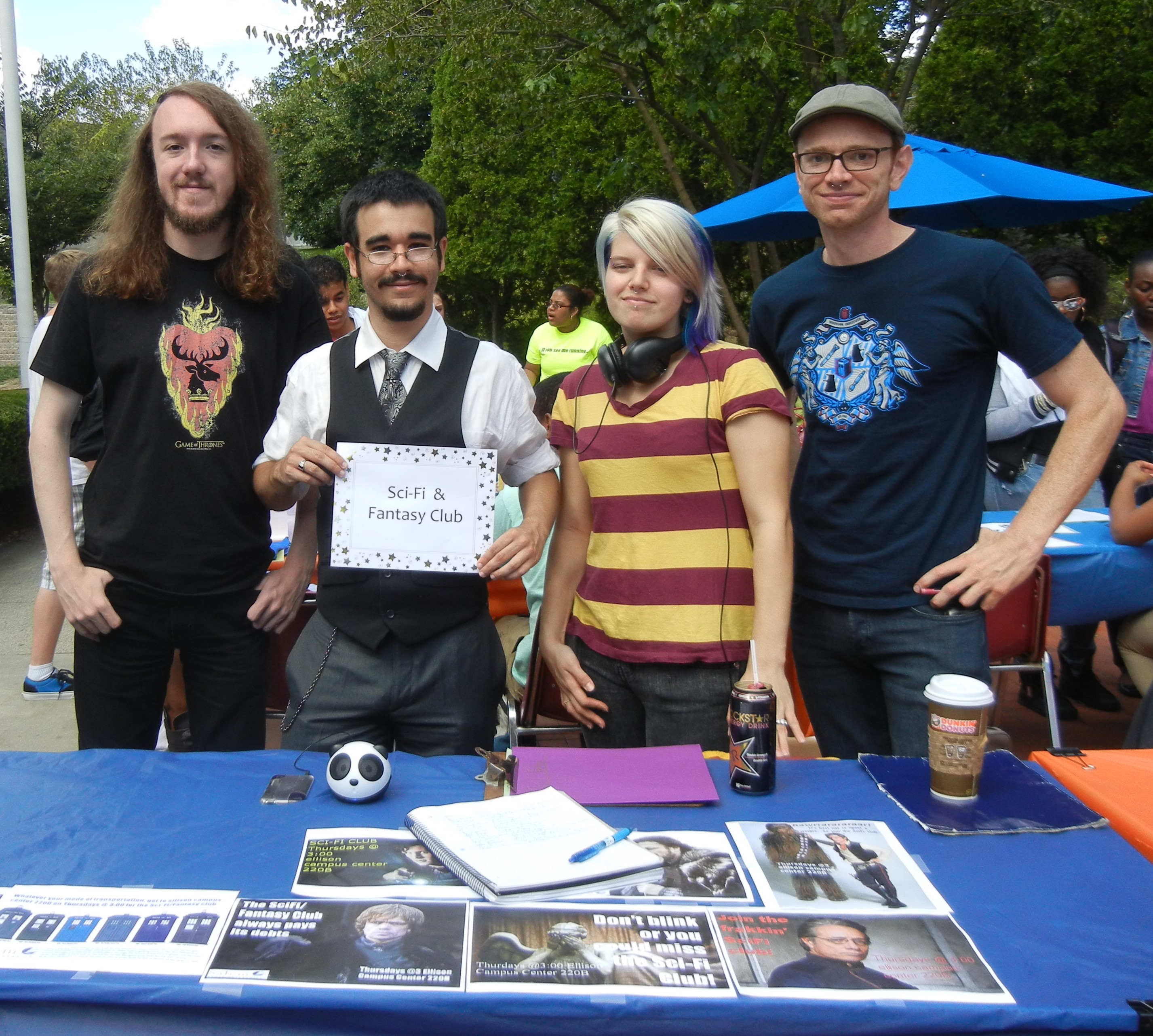 Salem State Log – serves as the campus newspaper and the independent voice of the students. Meetings held Mondays at 11am in ECC 013. Contact ECC 013 (x-6449). Salem State Log – serves as the campus newspaper and the independent voice of the students. Meetings held Mondays at 11am in ECC 013. Contact ECC 013 (x-6449).
Sci-Fi Fantasy Club – promotes science fiction/fantasy fandom. Contact Professor Daniel Mulcare (x-6470).
SCUBA Club – provides opportunities for SCUBA divers of all skill levels to improve their diving skills, encouraging dive safety, and organizing dive trips for all members of the organization. Contact Professor Ted Maney (x-6249).
Spanish Club – United people with an interest in Spanish language, culture, and history. Contact Professor John Aske (x-4358).
Sport and Movement Science Club – creates a sense of community, academic and social enrichment within the SMS department. Meetings held Mondays at 11am in O’Keefe Center 220. Contact Professor Katherine Bloom (x-6581) or Professor George Abboud (x-6581).
Student Action Resource Team (S.T.A.R.T.) – enhances an awareness of the field of social services among students. Contact Professor Felix Amato (x-6607).
Student Commuter Association – represents interests and provides activities for commuter students. Meetings held Mondays at 11am. Contact Jeff Smith (x-7701).
Student Government Association – serves as the sole voice of the students to the administration, faculty and legislators. Meetings held Tuesdays at 4:30pm. Contact ECC 102 (x-6447). 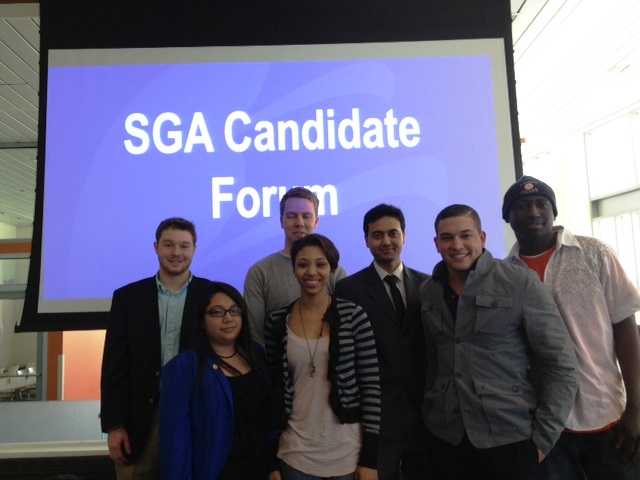
SGA Civic Engagement and Sustainability Committee - Coordinates educational programming and community service to raise awareness and recommends action to the student government association senate concerning civic engagement and to improve environmental sustainability on campus.
SGA Finance Committee - Establishes guidelines for reviewing budget requests and annual hearings by student organizations to recommend action to the student government association senate.
SGA Governmental Relations Committee - Monitors national, state, and local legislation impacting Salem State students and recommends action to the student government association senate, advocating for students.
SGA Public Relations Committee - Creates publicity to inform students and promoted the student government association’s goals.
SGA Rules Committee - Recommends action to the student government association senate concerning the SGA constitution; reviews the constitutions of proposed new student organizations; and monitors cases before the university judicial board.
SGA Student Life Committee - Recommends action to the student government association senate concerning issues affecting campus life, such as housing, meals, parking, and multicultural affairs.
Student Nurses Association – serves as the governing and representative organization for nursing majors. Meetings held Mondays at 11am in HB 126-127. Contact Professor Marion Frost (x-2520).
Student Theatre Ensemble – provides students with performance and production opportunities on campus. Meetings held Mondays at 4pm in SB 096. Contact Professor Michael Jaros (x-6719).
Ultimate Frisbee Team – provides opportunities to play organized Ultimate Frisbee on a competitive team. Contact Jesus Montoya (x-6416).
United States Institute for Theatre and Technology - enriches the education and experience of the technical theatre students and spreads knowledge about theatre technology. Contact Professor Michael Harvey (x-2546).
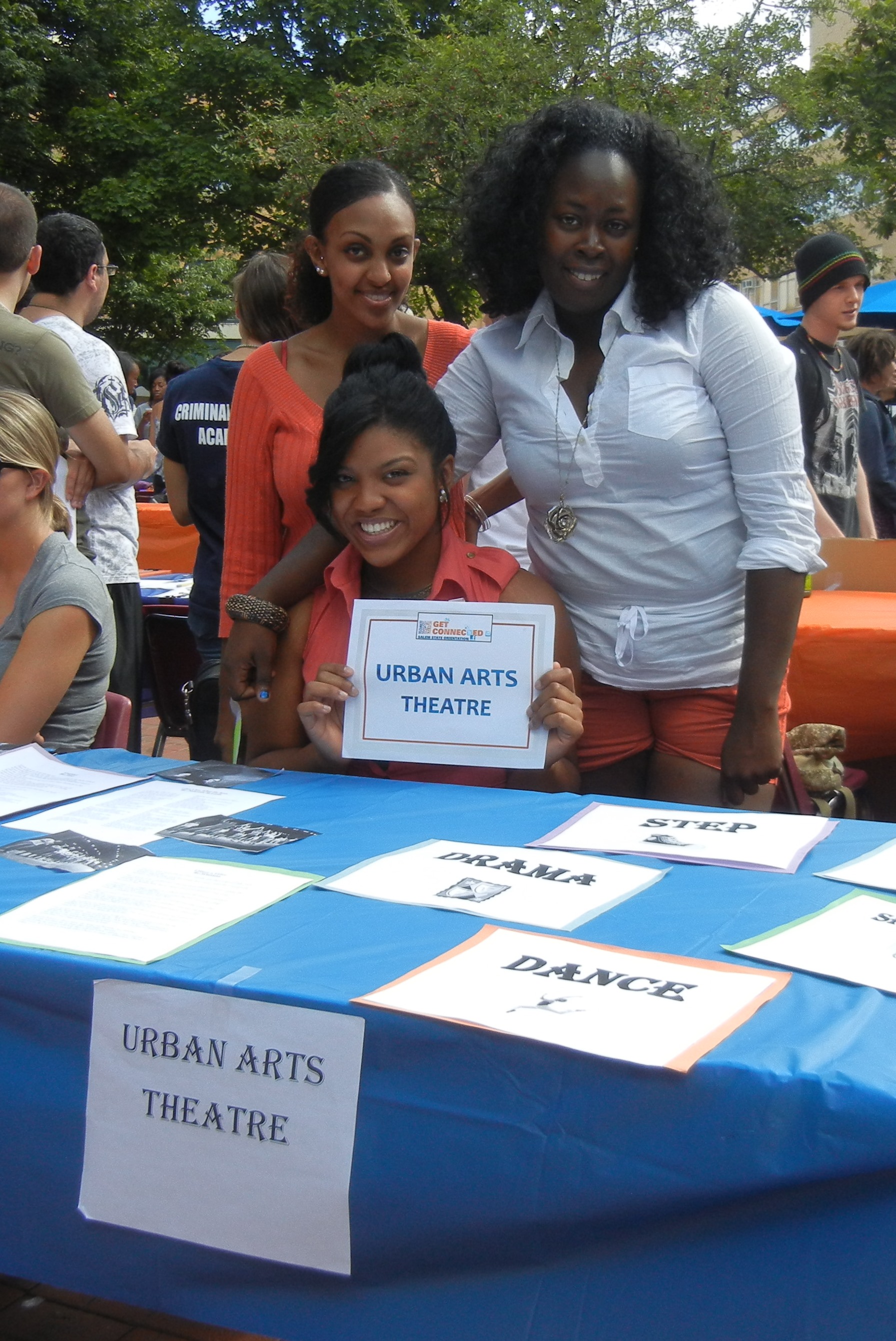 Urban Arts Theatre – teaches students about urban cultural expression through performing and visual arts. Contact Darius Gregory (x-6772). Urban Arts Theatre – teaches students about urban cultural expression through performing and visual arts. Contact Darius Gregory (x-6772).
WMWM – provides progressive and alternative radio programming. Contact ECC 011 (x-6790).
Interest Groups
Fitness and Nutrition Group – spreads awareness of benefits of good nutrition and fitness. Contact Professor Chris Schoen (x-6545)
Grandma’s Third Leg – creates and performs comedy/improv shows and workshops to entertain. Contact Bruce Perry (x-6435).
Intercultural Leadership Program – engages students in a freshman learning community for culturally diverse students who are committed to academic excellence, leadership, mentoring and civic engagement. Contact Professor Elizabeth Maciejewicz (x-6499).
Juggling Club – teaches juggling, flow and object manipulation arts. Contact Professor Bethany Jay (x-7349).
Math Society - promotes a common enthusiasm for mathematics. Contact Professor Kathi Crow (x-2418).
MASSPirg – conducts projects involving research, educational outreach and advocacy on issues of public concern in Massachusetts. Contact ECC 011 MASSPirg Coordinator (x-6870).
Student Philanthropy Club - promotes a culture of gratitude and provide students with the opportunity to give back to the Salem State community. Contact Wendy Davison (x-2603).
Fraternities and Sororities
Salem State has two fraternities and one sorority on campus. Email gogreek@salemstate.edu for more information about joining one of these organizations.
Alpha Sigma Phi Fraternity
Phi Sigma Sigma Sorority
Sigma Alpha Epsilon Fraternity
Athletics & Recreation
The intercollegiate athletic program at Salem State University holds membership in the following professional organizations: National Collegiate Athletic Association (Division III), Eastern Collegiate Athletic Conference, and the Massachusetts State Collegiate Athletic Conference. Additional memberships are held in organizations which deal with individual sport programs.
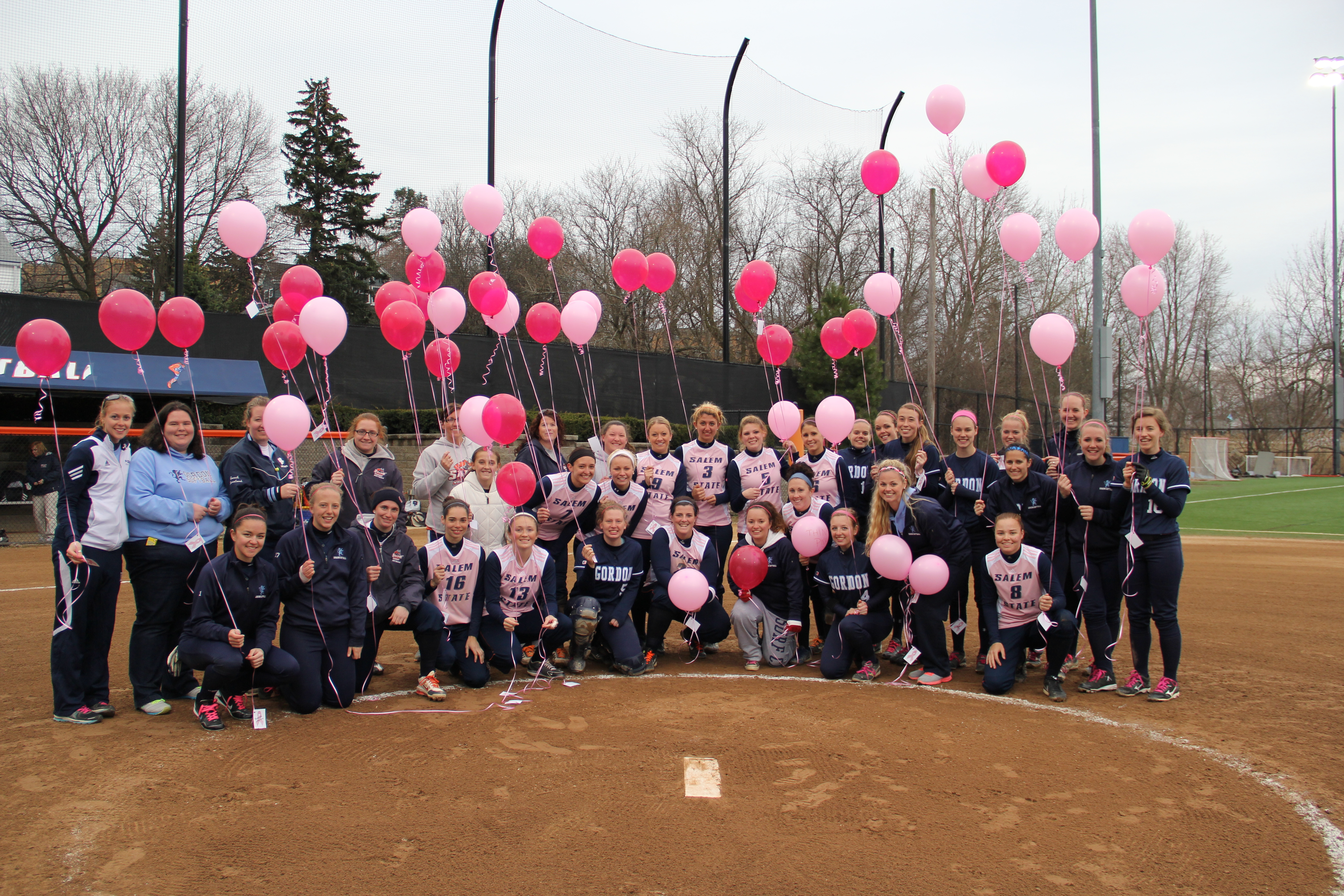
Salem State University’s Men’s and Women’s Intercollegiate Athletic Programs are highly respected on both the regional and national levels. Our college athletic teams have competed in several regional and national post-season tournaments. Additionally, Salem State University is a perennial power within the Massachusetts State Collegiate Athletic Conference.
Women’s athletic programs include:
- Field hockey, soccer, tennis, volleyball, and cross country in the fall.
- Basketball and ice hockey (club) in the winter.
- Softball and lacrosse in the spring.
Men’s athletic programs include:
- Golf, cross country, and soccer in the fall.
- Basketball and ice hockey in the winter.
- Baseball, golf, lacrosse and tennis in the spring.
To be eligible to participate in the Intercollegiate Athletic Program, students must carry a minimum of 12 credit hours per semester, must pass a minimum of 24 credit hours each year, and must be making satisfactory progress toward a degree. Whenever a student athlete fails to pass a minimum of 12 credit hours per semester, a transcript review will be conducted by the academic advisor for athletics to insure that satisfactory progress is being met. Numerous academic support services exist for students to employ. Tutoring, developmental skills laboratories, and time-management workshops are examples of the commitment the University has toward fulfilling the educational goals of its student athletes.
Students seeking information concerning athletic programs should contact the Athletic Director’s office located in the O’Keefe Sports Complex. As an NCAA Division III institution, Salem State University does not offer athletic scholarships. The University does, however, have an extensive financial aid program based on need, and all prospective student athletes are encouraged to apply.
The Recreation Program along with Intramurals & Clubs is housed in the Gassett Fitness Center that is part of the O’Keefe Complex. The Recreation Program is open to all students, faculty, and staff. It offers numerous opportunities for participation in a new state of the art fitness center and a new basketball/volleyball gymnasium. Organized competitive and non-competitive team sports as well as many individual leisure activities are offered. These activities include ultimate frisbee, volleyball, indoor soccer, flag football, dodge ball, ice hockey, basketball, rugby, broomball, ice hockey cheerleading, spirit dance team, Zumba, Pilates, yoga, TruFit and more. Individuals desiring to participate are encouraged to contact the Gassett Fitness Center at extension 4442. Please visit salemstatevikings.com for more information.

The Career Services Office is available to support current students and alumni in career related decisions. Assistance in choosing of major, clarifying career direction, exploring internship options and conducting a targeted job search are provided through the services outlined below.
Counseling
Individual appointments are available to assist clients in their career development needs. Through conversation, activities and inventories students will clarify their values, interests, personality preferences and skills allowing for clarification of career goals and ensuring the self-knowledge needed to conduct targeted job searches. Videotaped mock interviews are also available and are a valuable preparation tool for the interview experience.
Seminars
A variety of seminars are offered throughout the year including: resume writing, interview preparation and job search strategies. Registration is required, for a schedule of upcoming programs check our web site, salemstate.edu/3082.php.
Career Resource Center
The Center houses a collection of CD ROM, video and print resources including occupational information, job search resources, directories and labor market information (salary, industry outlook). Internet access is provided to career related sites. The Center also maintains listings of full-time permanent positions and internship listings. Positions are listed online through CSO (Career Services On-Line) on our web site.
Recruiting
Students graduating during the current academic year are eligible to participate in interviews scheduled on campus. To gain access to the list of scheduled companies students must register with Career Services. In addition, the office sponsors an annual job fair held in March.
Counseling and Health Services
Ellison Campus Center
Room 107
978.542.6410/6413
salemstate.edu/chs
The Counseling and Health Services provides a range of medical and mental health services to all SSU students including: evaluations, episodic treatment and referrals. Located in the Ellison Campus Center on North Campus, the office is open weekdays from 8 am to 5 pm. Students can call and make an appointment at their convenience. Urgent visits are available during office hours if needed. Visits are confidential and most services are free of charge; some procedures may be billed to student’s health insurance at no cost to the student. For additional information, go to salemstate.edu/chs or call 978. 542.6413 or 978.542.6410.
Procedures for Nursing, Medical Technology, and Nuclear Medical Technology Students Accidentally Injured at Off-Campus Settings
Each contract between the University and the clinical setting (i.e., hospital laboratory, clinic, etc.) should contain a clause clearly stating that the clinical setting will provide emergency treatment to students accidentally injured while working in their facility. Counseling and Health Services will continue to provide the services that are ordinarily available to all students.
While the University provides certain services through its Counseling and Health Services, this does not constitute an admission of responsibility for any injuries which may occur, or may have occurred as a result of any student’s participation in the clinical process.
The costs of any treatments to students, beyond those cited above, which are required as a result of an accident in their clinical setting, will not be covered by the University. Students will be encouraged to contact their insurance carrier to determine the extent and access of coverage whenever an accident occurs. Students enrolled in these academic programs should contact program officials for further instruction.
Residence Life
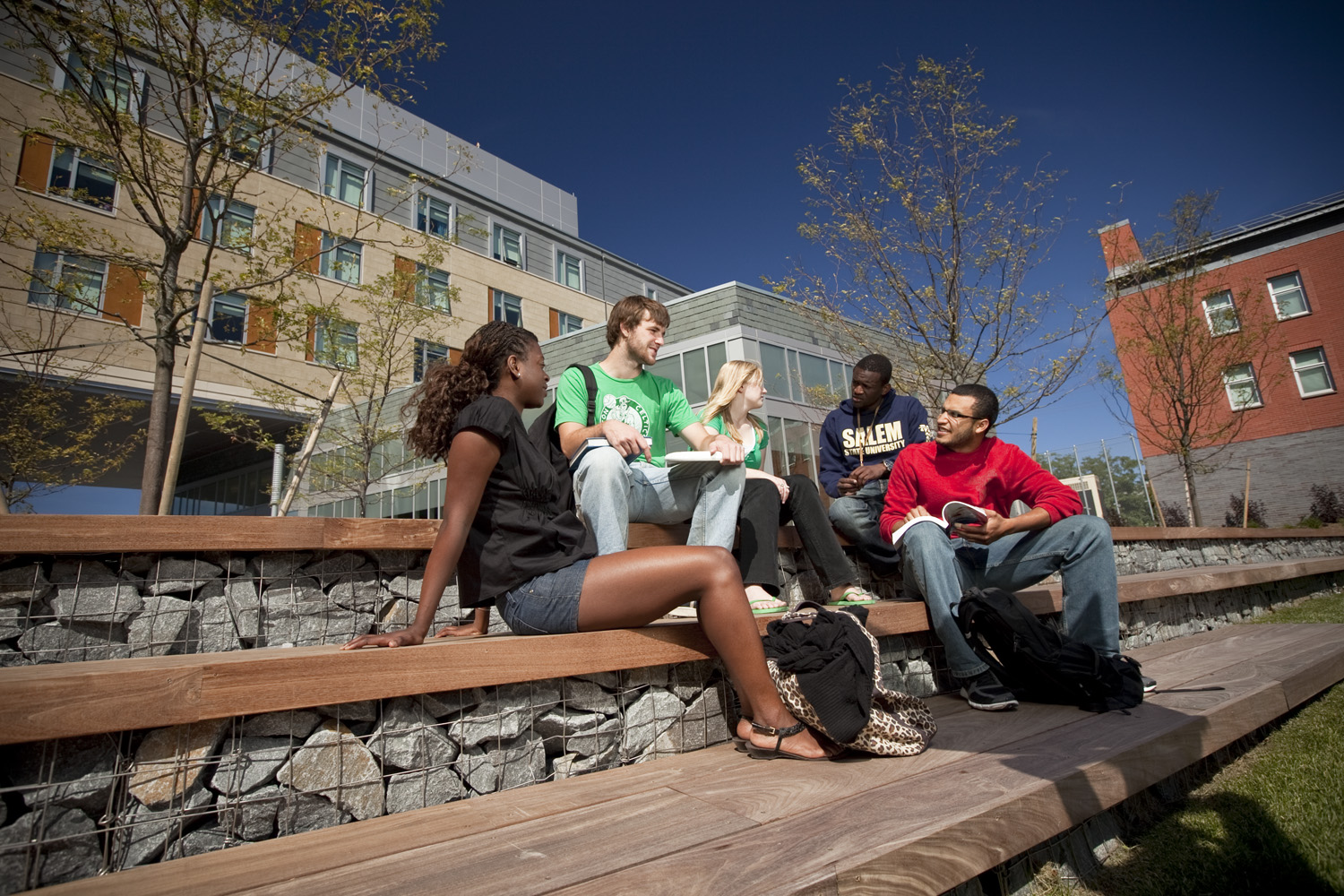
Living on Campus
Over 2,000 students currently reside in on-campus living and take part in various activities, events, and experiences held within the residence halls. The Residence Life Program reflects the educational mission of the University, which includes the development of the student’s intellectual, social, cultural and physical potential. The residential areas provide students with a living/learning experience and afford a unique environment for students to interact with individuals from very diverse backgrounds and experiences. The Office of Residence Life is committed to the development of community, heightening awareness, fostering learning, and encouraging empowerment for our students. Residence Life at Salem State University has been nationally recognized by several outside organizations for the quality of staff, student leadership opportunities, and programmatic initiatives.
Traditional Style Residence Halls
Peabody Hall and Bowditch Hall are located on North Campus and house a total of 675 first year students. Each is a co-educational, corridor style residence hall focused on the first year experience supporting students in their transition to collegiate life. New this year, Peabody and Bowditch Halls will house the Psychology and Education Living Learning Communities in addition to Honors Housing.
Marsh Hall, located on Central Campus, is the newest residence hall and has been designed to create a living/learning environment for second year students. This pod style community houses students in double rooms, clustered in groups of approximately 36 students. Each pod has a study/social area and several bathrooms. The building also has a fitness room, laundry facility, large ground floor lounge, two faculty-in-residence, and a dining hall. Several theme-communities exist at Marsh Hall including a Service Learning Community and Honors Housing.
Apartment Style Residence Halls
The Bates Complex is a townhouse environment located on South Campus directly across from the Harrington Building. Each apartment has been designed for six occupants. The units include a kitchen, living room, two bathrooms and three or four bedrooms. This living area is limited to upper-class students (juniors and above). Several theme-communities exist at the Bates Complex including Non-Traditional Housing (21+ by apartments), Gender Neutral Housing, a Transfer Community, and the International House.
Atlantic Hall, located on Central Campus, is an apartment style residence featuring six person apartments, a “smart” seminar room, fitness room and two faculty-in-residence. This living area is limited to upper-class students. Several theme-communities exist at Atlantic Hall including Honors Housing, and Gender Neutral Housing.
Staffing
A full-time Residence Director with a Master’s degree and prior residence life experience manages each residential area on campus. The Resident Director assists students in their transition to the college experience and they are responsible for the overall management of the building/area. Resident Directors are committed to creating an environment that enhances the development of each resident on campus. Resident Directors supervise Assistant Resident Directors (GAs) who are studying higher education administration, social work or psychology/counseling and provide support to students in addition to the Resident Assistants and other student staff within the building. The First Year Experience and Sophomore Year Experience residence halls are staffed with Academic Mentors who are undergraduate students trained to provide academic centered programming and resources to the residential community. Each residential area also has its own maintenance staff. Peabody Hall, Bowditch Hall, Marsh Hall, and Atlantic Hall all have 24-hour student desk staff, who answer questions and assist with the security of the building.
Eligibility for Housing
Salem State provides housing for full-time matriculated undergraduate students. There are no on-campus residence hall facilities for married couples or families. Residence Life provides housing for full-time undergraduate students. Any student who would like on-campus accommodations may obtain information at Residence Life; new incoming students interested in housing should speak with the Admissions Office.
Three Year Housing Guarantee
Beginning in fall 2009, new students who receive housing through the admissions process are guaranteed on campus housing for three years contingent upon the student following the policies specific in the Residence Life License Agreement.
Residence Hall License Agreement
|
^Top |
Residence hall students are required to sign a Residence Life License Agreement, which is binding for the entire academic year. The Guide to Living on Campus is an important document, which complements the Agreement and outlines additional policies and expectations. Resident students who live in Bowditch, Peabody and Marsh Halls are required to subscribe to a 14 or 19 meal plan. Resident students who live in the Bates Complex and Atlantic Hall are required to have a Resident Meal Plan but may opt to increase it to a 14 or 19 meal plan (see salemstate.edu/4923.php for more detailed information).
Residence Hall Association (RHA)
RHA is the student organization that represents the specific needs and concerns of students living on campus. Each residential living area has a Community Council of elected students who represent the residents’ best interests and serve as voting members of the Residence Hall Association. This group of students’ sponsors educational and social programming within the residential areas as well as for the entire Salem State community, and serves as an advocate regarding student concerns. In addition, RHA is affiliated with the National Association of College and University Residence Halls (NACURH, Inc.). Financial support for RHA and the Community Councils is generated from a Residence Hall Activity Fee. Students involved in Community Council have a direct impact on how this money is spent. RHA at Salem State University is a nationally recognized student organization, and has served as a model for RHA’s at other institutions across the country. RHA also serves as an umbrella organization for Omega Zeta Epsilon, the University’s chapter of the National Residence Hall Honorary and Weekend Warriors, a programming group which coordinates weekend activities and trips for residential students.
Fees
See Residence Hall and Dining Hall Fees under Tuition & Fees, salemstate.edu/5898.php.
Food Services
Salem State University offers several dining facilities. The management of the Food Service is assisted in the operation of these facilities by the Food Services Committee, established jointly by the Office of Student Life and the Student Government Association. The committee encourages suggestions concerning all aspects of the Food Services and relays these suggestions to the Food Service managers.
The Commons Dining Hall on North Campus is open for meal cardholders and for those who pay standard meal prices. The South Campus Cafeteria, the Faculty Dining Room and the Sports Complex Cafe are open on a cash or meal card plan basis.
Multicultural Programs

The Office of Multicultural Affairs assists students of color with their transition and continued involvement in the collegiate experience through educational, cultural and social programs. The Office is also committed to developing programs and services to educate the campus community about diversity issues. The following initiatives have been offered as part of the office’s ongoing mission: Advisement of organized student groups of color, assisting in the admissions efforts to recruit students of color, providing leadership and training opportunities for minority students, serving as an ombudsperson for students of color, and providing a variety of multicultural awareness initiatives for faculty, staff and students.
Orientation Program
New Student Orientation
The New Student Orientation Program is conducted under the auspices of the Student Involvement and Activities Office in coordination with the Enrollment Management Office. Student Orientation Navigators play an integral part in the implementation of the program.
The program is designed to welcome incoming students to the University; to acquaint them with campus facilities, services, activities, clubs and organizations; to provide essential information on academic programs, policies and procedures; and to initiate the advising process in relation to registration and the selection of a program of study.
All entering first-year students are required to pay a one-time orientation fee. (see Tuition & Fees ). For further information, see salemstate.edu/orientation.
Family Orientation
The Orientation Program also offers a Family Orientation for the parents, guardians, or spouses of entering students. The program typically includes presentations from University officials; information on academic expectations for students; a panel discussion on university resources and services; and small group meetings with orientation leaders on how to be most helpful to new students. For further information, see salemstate.edu/orientation.
Transfer Student Orientation
Transfer Student Orientation is an abbreviated program designed to introduce transfer students to the University’s programs, services and facilities; to provide information on transfer credits approval; and to aid them in preparing for registration. An academic advising session with a representative of the student’s major department is also offered. All entering students are required to pay a one-time orientation fee. (see Tuition & Fees ).For further information, see salemstate.edu/orientation.
Public Safety
The Salem State University Public Safety Department is responsible for the protection of life and property on and in the confines of the 108 acres and 24 buildings which make up the environs of Salem State University.
The Department operates on a 24-hour basis, 7 days a week providing the community with police and emergency services. The Department also offers a wide range of assistance to students, faculty and staff in such areas as parking and traffic control, campus escorts, a crime prevention unit, and police protection consisting of foot, bicycle and marked cruiser patrols.
Vitally concerned with the safety and security of property, the men and women of the Public Safety Department enforce both the laws of the Commonwealth of Massachusetts and the regulations of the University. Public Safety officers carry firearms and have the full police powers as constituted by the Commonwealth of Massachusetts. For further information, see salemstate.edu/401.php.
Student Advocacy
Salem State University has multiple campuses, many offices, as well as many different systems. Sometimes it can be confusing for students to find their way or figure out the answer to questions. The student advocacy office is committed to providing support and information to resolve concerns that may act as a barrier to your success. In addition we act as a liaison between students and university personnel in a fair and impartial manner regarding student’s rights and university policies/regulations.
Issues with university offices, policies or procedures? Experiencing significant life issues which are impacting your experience at the university? These are all good reasons to contact the student advocacy office.
Student Handbook
The Compass (student handbook) is published by the Student Life Division in an effort to provide students with guidelines and information concerning co-curricular life on campus. The Compass—and any supporting publication to which it directly refers — serves as the authoritative source for student life matters under the supervision of the Vice President for Student Life. For additional information go to: salemstate.edu/student_life/424.php.
Student Judicial System
The Assistant Dean of Student’s Office is charged with the responsibility of administering the student judicial system in conjunction with the Student Government Association. The judicial structure consists of several student judicial panels and officials. All students should be familiar with the University’s Student Conduct Code, which describes the system in detail. Copies of the Code are available upon request from the Student Life Office, Judicial Affairs Office, Student Government Association Office and online at salemstate.edu/5622.php. |